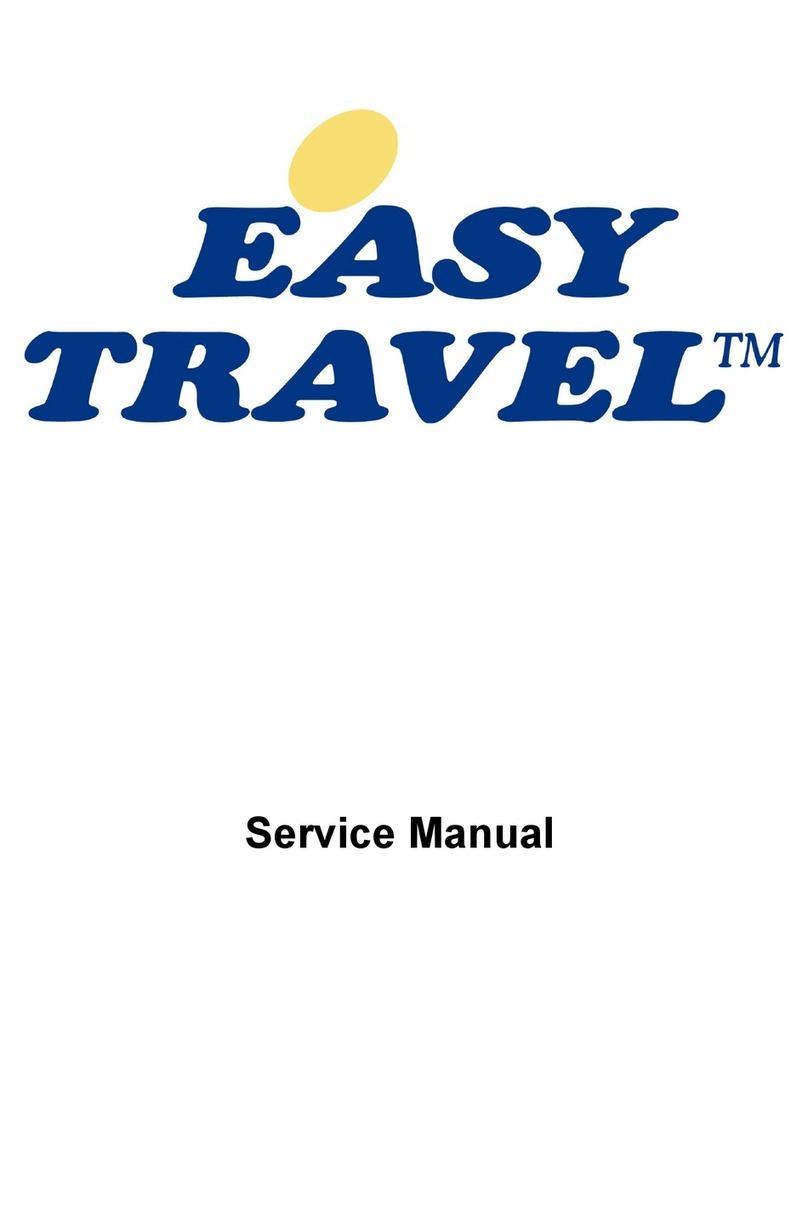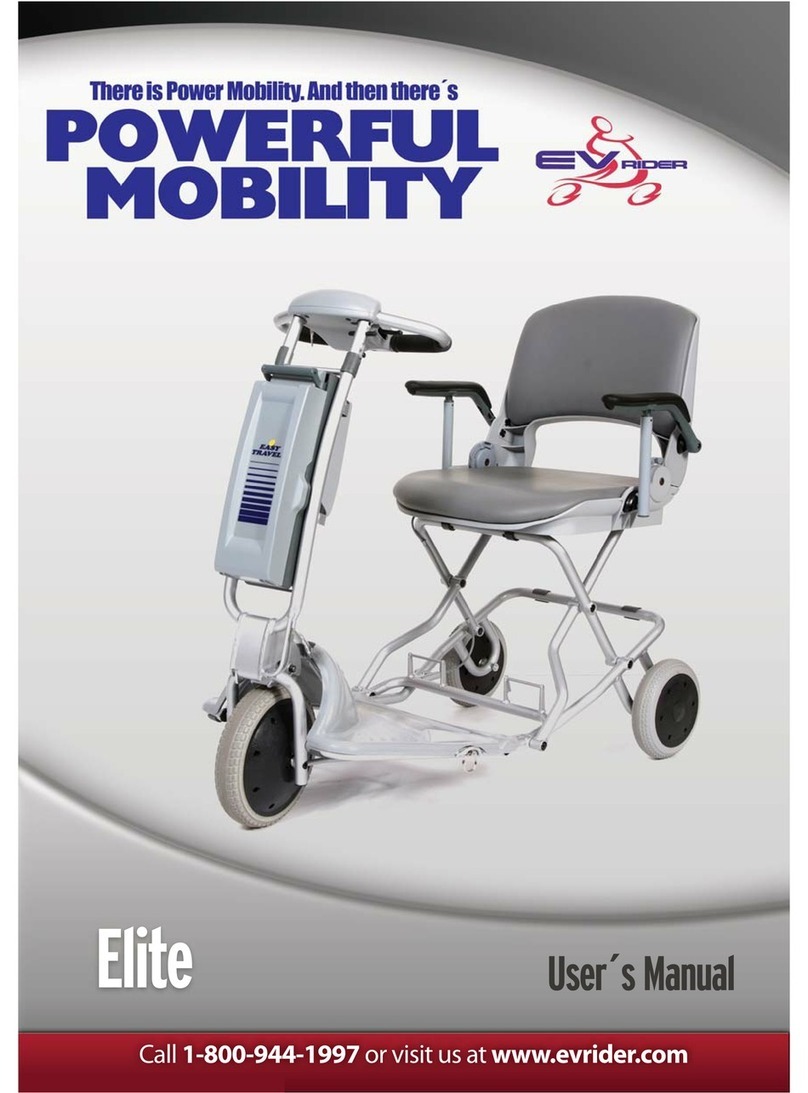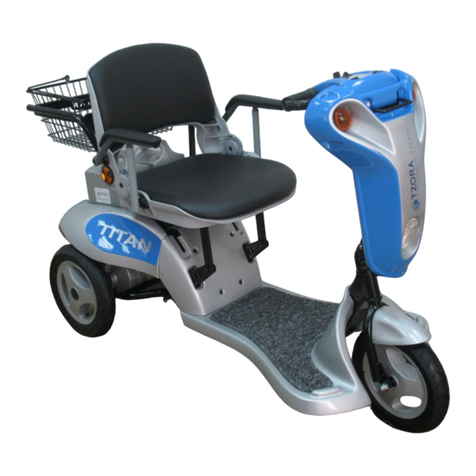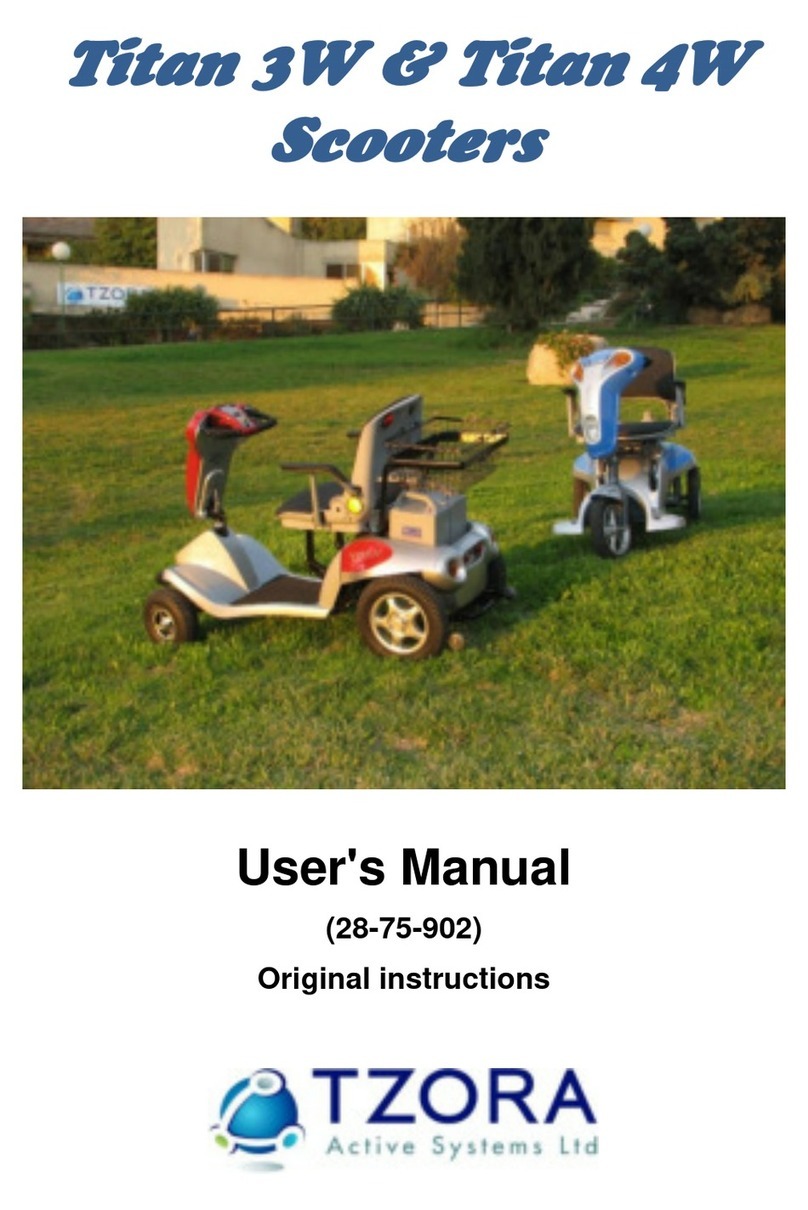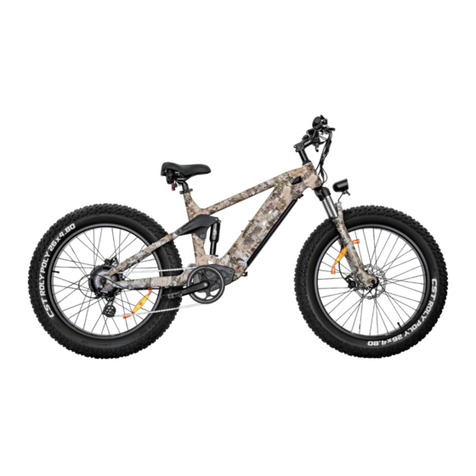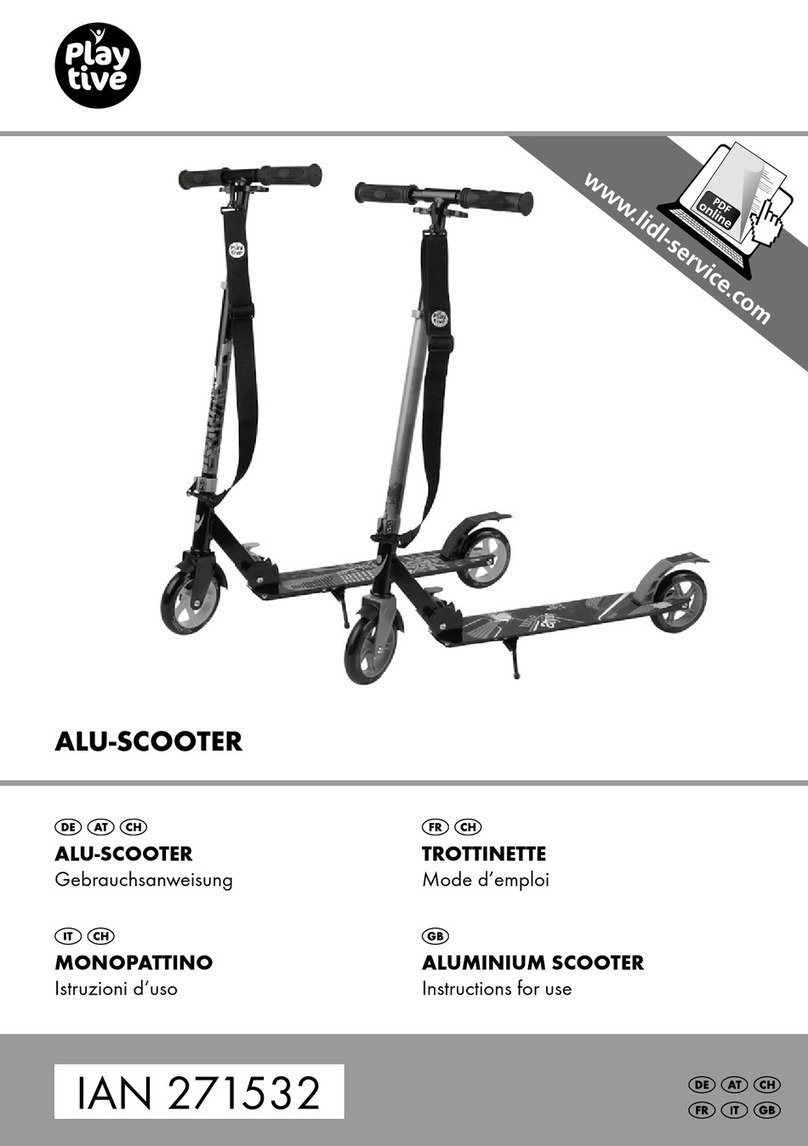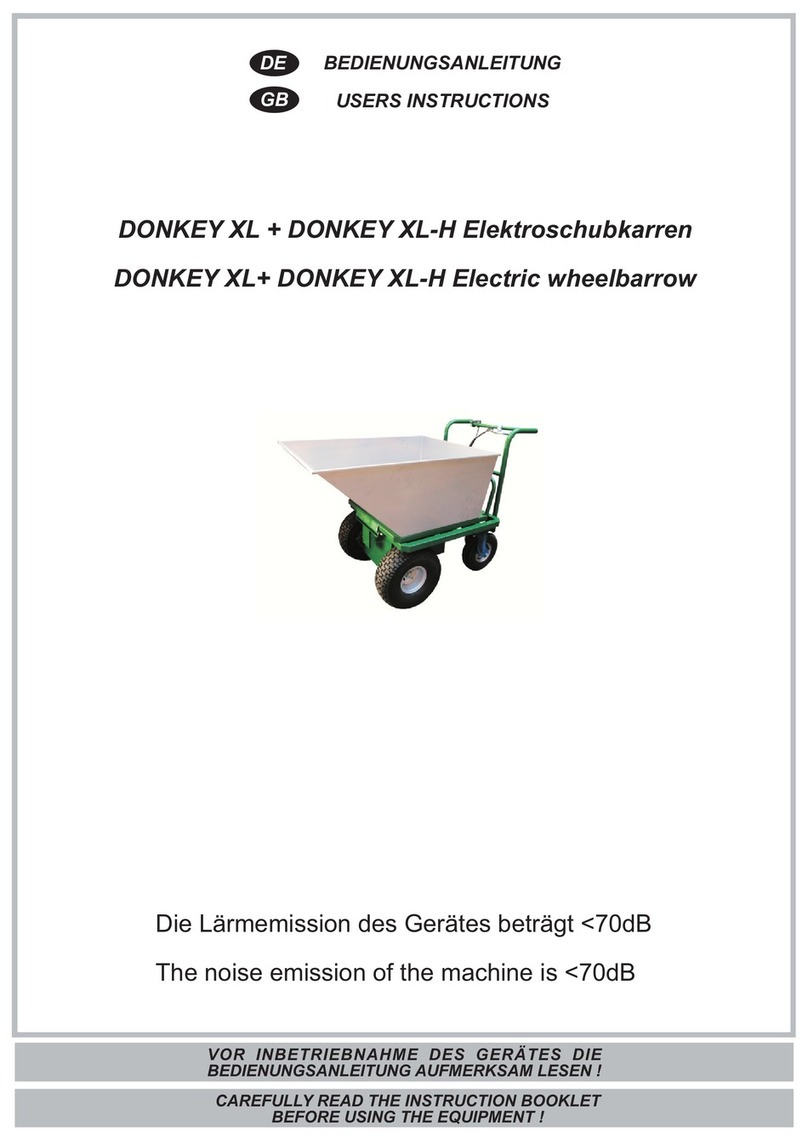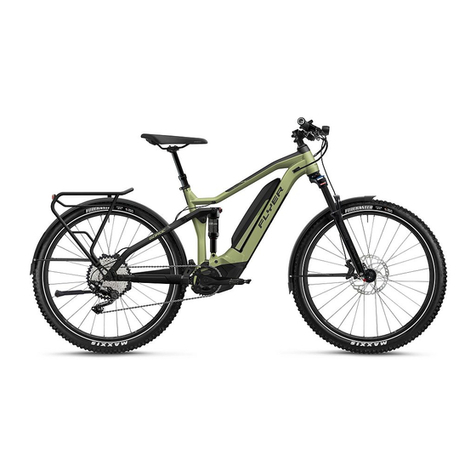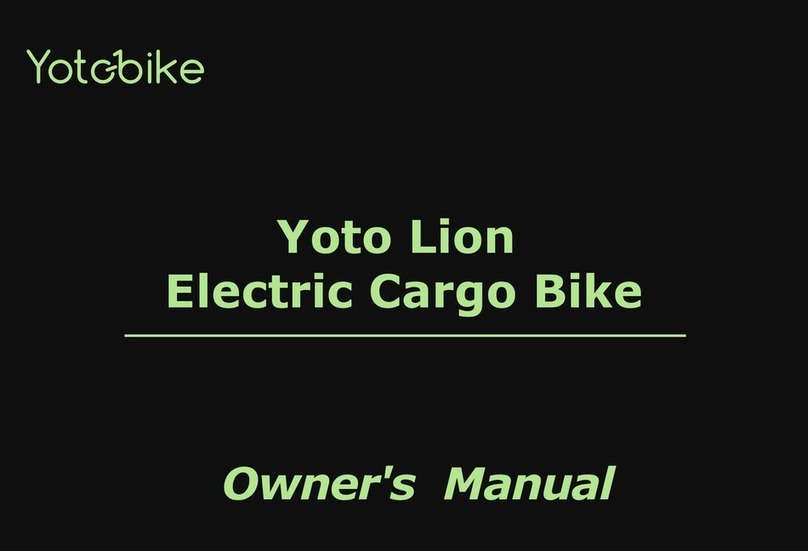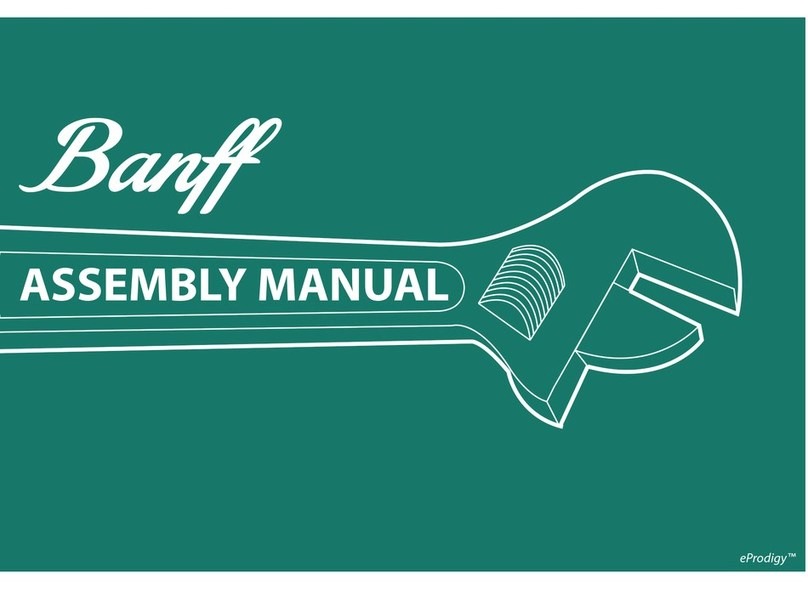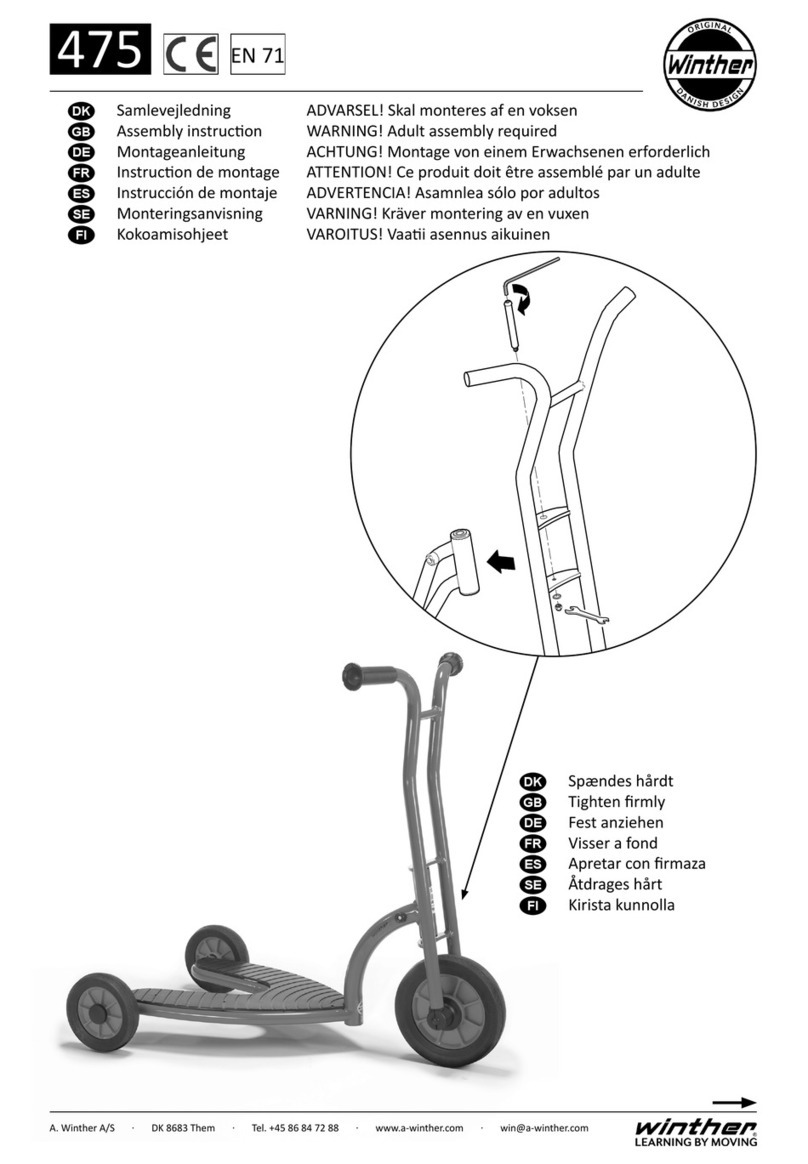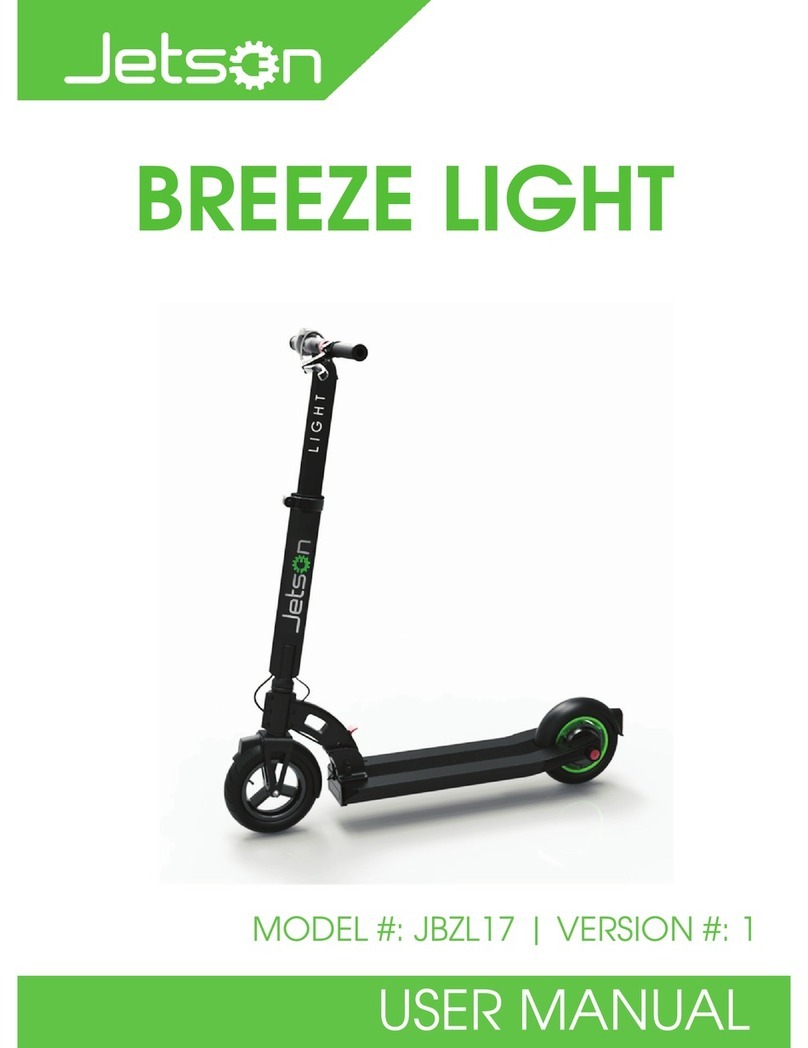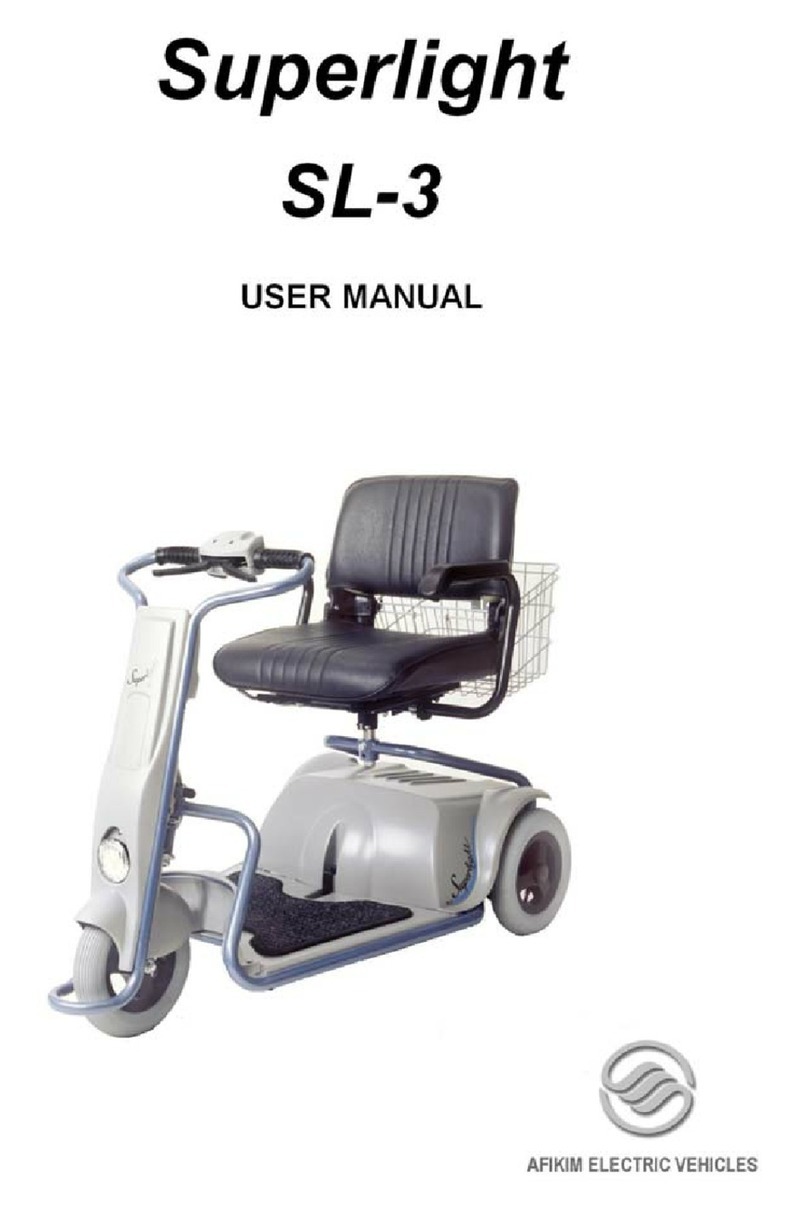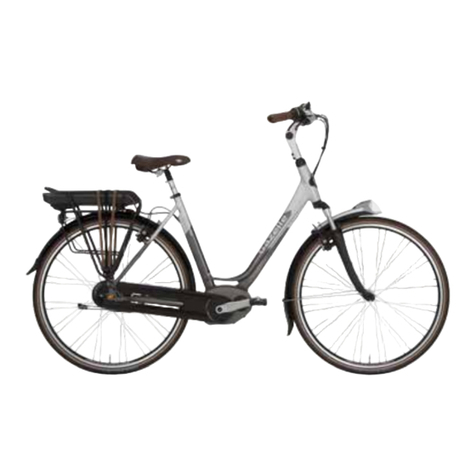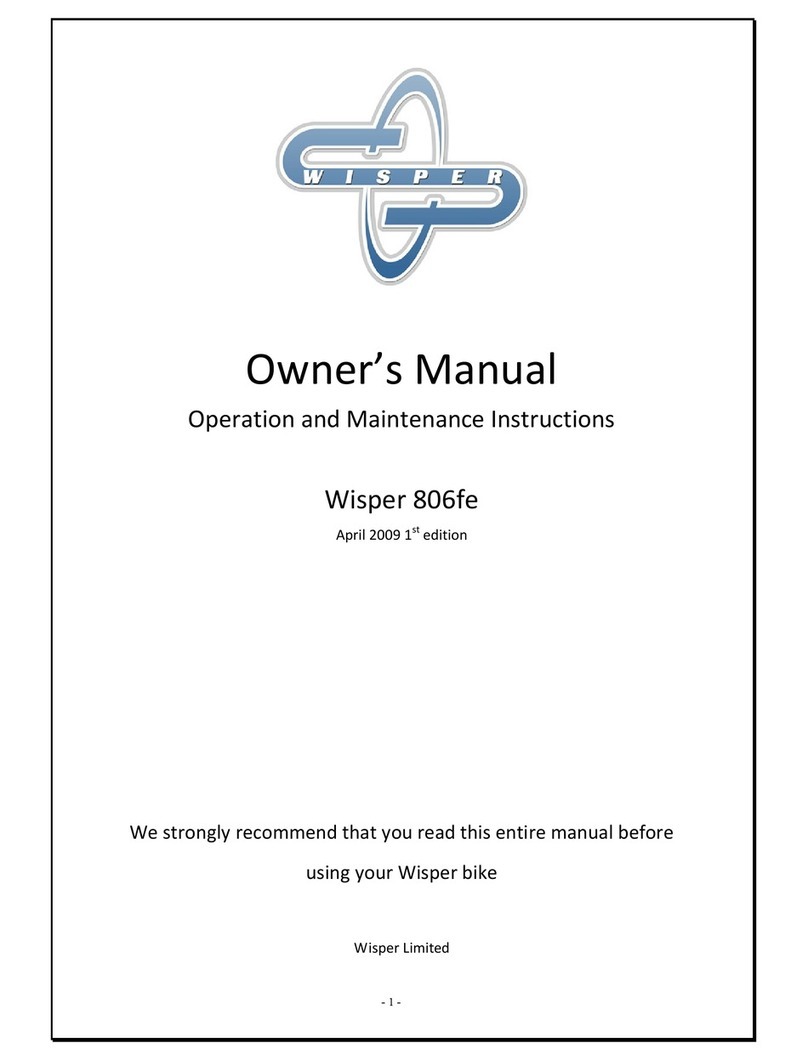Lexis Light –ET1B User’s Manual T.Rev. 0512 PM 4
1. INTRODUCTION
The Lexis Light is intended for use by individuals that are able to
walk, but suffer from mild mobility limitations. The user must have sufficient
arm and leg strengthtoget on and off the Lexis Light alone and to
safely steer under all driving conditions. The Lexis Light is intended
for indoor and restricted outdoor use on pavements or paved footpaths only
during daylight hours. The Lexis Light mustnot be used as a
transportation vehicle onroads or freewaysused by cars.The Lexis Light
does not have lights and reflectors and therefore mustnot be used in
the dark or in limited visibility conditions.
2. SAFETY
During your initial use of the Lexis Light we recommend caution as
you practice operating the unit in various situations. Keep the speed at a
reduced level until you are comfortable controlling the scooter. Follow the
safety tips and instructions and you will be comfortable maneuvering through
doorways, on and off lifts, over moderateterrain and up and downramps.
These safetyconsiderations and tipswill help you tooperate the Lexis Light
safely.The Lexis Light is a powerfulelectricvehicle these
rules will helpyou prevent personal injury and damage to yourscooter.
1. Read this manual and all labels before operating.
2. Do not carry passengers or exceed the maximum weight capacity.
3. Do not mount or dismount the Lexis Light unless it has come to a
full stop and is turned off.
4. Do not back up on to uneven inclines or surfaces.
5. Always switch the speed selector to low when driving in a confined space.
6. Always reduce speed when turning.
7. Do not operate your scooter when under the influence of alcohol,
medications or drugs that may impair your safety.
8. Always keep your feet on the foot platform when driving.
